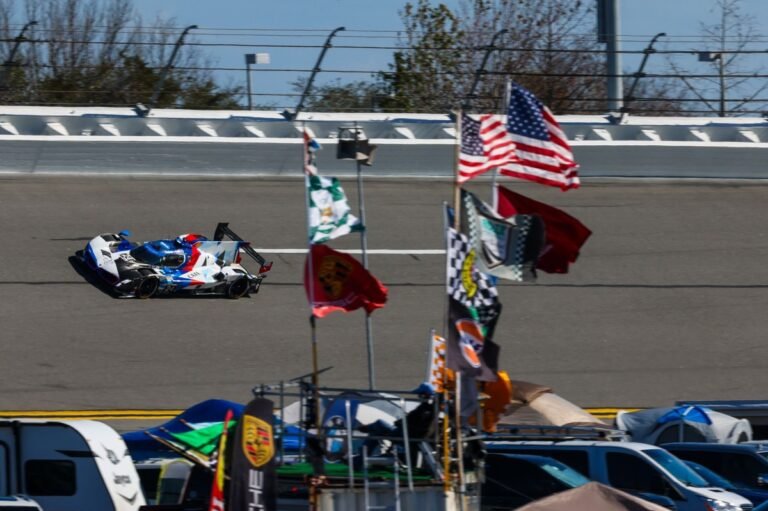How BMW’s Daytona Disappointment Fostered a Lopsided Porsche Victory
The Setting: Daytona 24 Hours Underdogs
The Daytona 24 Hours race, known for its grueling demands and high stakes, serves as a pivotal event in the world of endurance racing. Teams bring their latest technology and top drivers, all vying for glory. In the latest race, BMW entered with hopes of finally breaking through and claiming a victory that had eluded them, while Porsche, a brand synonymous with endurance success, sought to further cement its legacy. However, the outcomes would tell a different story, primarily influenced by BMW’s own shortcomings and the unwavering prowess of Porsche.
BMW’s High Hopes Turn to Disappointment
As the race unfolded, BMW faced a series of challenges that would ultimately crush its aspirations. Early in the race, the team was optimistic, relying on advanced engineering and strategic pit stops. However, technical issues plagued the BMW racing team. These setbacks hindered their performance at crucial moments, stripping them of the competitive edge they needed. As laps wore on, the initial excitement transformed into frustration for both the drivers and the pit crew. The cumulative effects of these missteps effectively knocked BMW out of contention before the finish line, leading to a long day filled with disappointment.
Porsche’s Strategic Mastery
While BMW struggled, Porsche seized the opportunity to showcase its dominance in endurance racing. With their reliable performance and effective strategies, the Porsche team exhibited an impressive level of consistency. This wasn’t just about driving fast; it involved careful tire management, efficient fuel economy, and skillful handling of the race’s numerous challenges. The drivers communicated well with their crew, allowing for quick decisions in response to changing race dynamics. This synergy set Porsche apart, allowing them to fully capitalize on BMW’s misfortunes and solidify their position at the front of the pack.
Unpacking the Lopsided Victory
As Porsche cruised toward victory, the disparity in performance between the two teams became strikingly apparent. Porsche managed to secure a significant lead, showcasing a well-oiled machine that functioned seamlessly. The final laps, dominated by Porsche, illustrated the culmination of strategic planning, execution, and adaptability that other teams, including BMW, struggled to achieve. This lopsided result highlighted not only the effectiveness of Porsche’s approach but also underscored the challenges that can derail even the most prepared teams during a marathon race like Daytona.
Lessons Learned from the Race
The lessons from the Daytona race are manifold, particularly for BMW. Organizations must remain adaptable and focused on reliability if they wish to compete at high levels. The importance of a solid team dynamic, where every member aligns with a singular mission, cannot be overstated. For Porsche, this victory reinforces their strategy; they have built a culture that fosters resilience, preparation, and a relentless pursuit of excellence. On the other hand, the challenges faced by BMW serve as a reminder of the harsh realities of racing, where the smallest miscalculation can lead to significant consequences.
Looking Ahead: The Future of the Brands
In conclusion, the Daytona 24 Hours race illustrated how swiftly fortunes can change in the tumultuous world of endurance racing. BMW’s disappointment offers a poignant narrative of what happens when ambition collides with reality. In contrast, Porsche’s victory reinforces their historical dominance and sets the stage for future competitions. As teams reflect on the lessons learned, the anticipation for future races grows — who will adapt, who will innovate, and who will seize victory? This enduring rivalry between leading brands guarantees that future races will remain electric, full of potential for both triumph and defeat.



